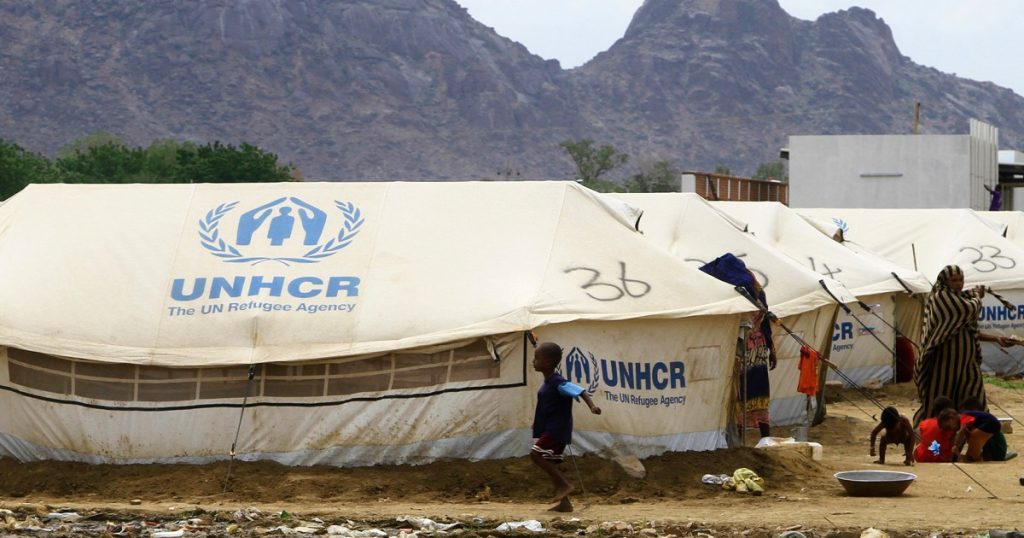War-torn Sudan is currently facing a humanitarian crisis that has reached a catastrophic breaking point, as declared by the U.N. migration agency due to ongoing fighting and devastating flooding. The country plunged into chaos last year when tensions between the military and a notorious paramilitary group, the Rapid Support Forces, escalated into open conflict in the capital, Khartoum, before spreading throughout the nation. The conflict has resulted in thousands of casualties, pushing many into starvation, and committing war crimes and crimes against humanity, including mass rape and ethnically motivated killings.
Sudan’s war has led to the world’s largest displacement crisis, with over 10.7 million people forced to flee their homes since the fighting began. More than 2 million of these individuals have sought refuge in neighboring countries. Recent devastating floods in 11 out of Sudan’s 18 provinces have further exacerbated the situation, resulting in numerous deaths and the destruction of critical infrastructure. The International Organization for Migration has warned that without immediate, massive, and coordinated global intervention, tens of thousands of preventable deaths could occur in the coming months.
Experts have confirmed that starvation in a massive camp for displaced people in Darfur has escalated to famine, with approximately 25.6 million people in Sudan facing acute hunger, representing over half of the country’s population. Ongoing fighting in Darfur’s city of al-Fasher and the southeastern province of Sennar has forced over 700,000 people to flee their homes last month alone. The uncertainty surrounding the participation of Sudan’s military in upcoming peace talks in Switzerland, spearheaded by the United States and Saudi Arabia, adds another layer of complexity to the crisis.
The U.S. special envoy for Sudan, Tom Perriello, disclosed that the military has not yet confirmed its attendance at the cease-fire talks scheduled for Wednesday in Switzerland. Despite efforts by a Sudanese government delegation to engage with U.S. officials in Jeddah, no breakthrough has been achieved. The Rapid Support Forces have indicated their willingness to participate in the talks, but the Sudanese Armed Forces have not given their affirmation yet, which is crucial for progress. Observers from the U.N., African Union, neighboring Egypt, and the United Arab Emirates are expected to attend the talks, with accusations of the UAE supporting the RSF with weapons.
The ongoing conflict in Sudan, coupled with the restrictions on humanitarian access, poses a grave threat to the lives of millions of people in the country. Urgent action is required to address the catastrophic food insecurity, displacement crisis, and devastation caused by floods. The situation will likely deteriorate further if adequate measures are not taken immediately to end the fighting and ensure the delivery of humanitarian aid to those in need. The international community must come together to support peace efforts, facilitate access to affected populations, and prevent further suffering and loss of life in Sudan.


